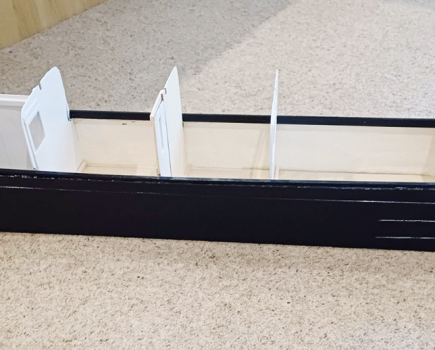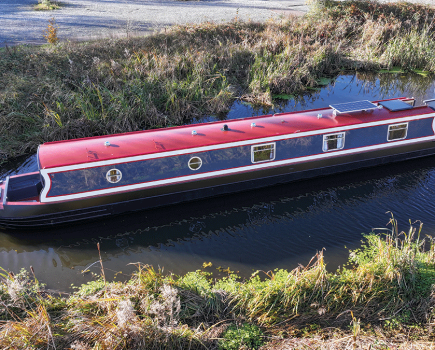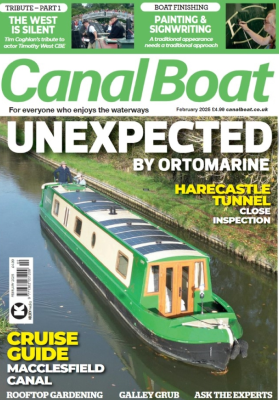“None of us wants to be moored on a floating rubbish tip when we take our boats out; none of us want to cut another plastic bag from our propellers”
At long last the Canal and River Trust has decided to address the problem of plastic pollution. And not before time. New research this month suggests that more than half a million plastic items are being flushed through the canal system every year into our already heavily contaminated oceans.
Some of us have been banging on about this for decades. Forget the wider environmental implications – none of us wants to be moored on a floating rubbish tip when we take our boats out; none of us want to cut another plastic bag from our propellers. I remember cruising the Leeds & Liverpool in the 1980s when a senseless dispute between the old British Waterways Board and a local council about whose responsibility it was to clean it led to one lock being completely full of plastic bottles.
In the 1990s I remember cruising down the Severn after a period of heavy rain. You could see how high the water had reached by two continuous lines of plastic supermarket bags clinging tenaciously to hawthorns on both banks. They must have been there for years. Some of them probably still are.
C&RT is recommending that every visitor to the canals picks up a single item of plastic on each trip as their contribution to the global plastics crisis. Boaters, I’m sure, could do better than that. A few I know – they should take a bow – already make a point of collecting rubbish each night from everywhere they moor. One boater, however, has made an enormous difference, and her story is an inspiration, proving how one individual with determination can achieve real change in the world.
Claire – she’s a bit shy about personal publicity – lived with her now husband Joseph for years on a widebeam Obelix on permanent moorings at Hanwell on the Grand Union. It was, as she admits herself, a bit like The Good Life – that classic 1970s series about a young couple who retire to Surbiton in their search for self-sufficiency.
Claire and Joseph kept chickens and goats and grew vegetables. Life would have been idyllic except they couldn’t ignore the huge amount of plastic bags that passed through the lock flight where they lived. They wondered idly where they all ended up.
The crunch came when Claire saw pictures of a dead Minke whale washed up in France and she discovered the answer. Its stomach was bursting with plastic bags. Shocked at what she’d seen, Claire vowed never to use one again in her life. The problem was, what could she use instead?
Fabric seemed the obvious biodegradable answer – except she didn’t sew. Fortuitously though, she’d recently inherited a sewing machine from a great aunt which had been sitting unused in a cupboard, so she dug it out to make a simple bag, designed by her mother. The first one was made from fabric she found in a skip, subsequent ones from an old duvet cover.
It was after she’d started giving them to friends and neighbours she realised she might have hit on something. Okay, it wouldn’t completely solve the plastic bag problem, but it might go a little way towards helping it. People liked the handmade bags they were given. They liked their uniqueness. Most of all, they liked an alternative to plastic. Claire thought that maybe others could be enlisted to do as she’d done and make bags to give away. Joseph built a website where they put a free downloadable pattern for what they now started to call Morsbags.
It immediately touched a chord. People seemed to get it, and they gradually embraced the idea. Making Morsbags in groups – ‘pods’ as they call them – became a social activity involving much tea and cake; giving them away in what began to be called ‘guerrilla bagging’ became a political activity. Soon charities got in on the act, using Morsbags to publicise themselves within the overall environmental message. I was bagged in Leicester by the Lions, the first time I’d come across a Morsbag.
Today if you go to morsbags.com or Morsbag on Facebook you get some sense of how this small idea has grown to the point where there are now thousands of pods the world over. So far Claire estimates 325,000 Morsbags have been distributed potentially representing 169 million plastic bags replaced. But how would she know? How could anyone know when the idea had been wrested from its creators and has a life of its own in its volunteers?
Back in the day, when she lived on Obelix, Claire used to read – and ‘love’ – Canal Boat magazine. When I first contacted her she said that being featured in the magazine, spreading the word to like-minded boaters, felt like the story had come full circle. Not quite, Claire. It will have come full circle when our readers get themselves involved in this project. I’m sure they won’t disappoint us.
Follow me on Twitter @Cutdreamer







